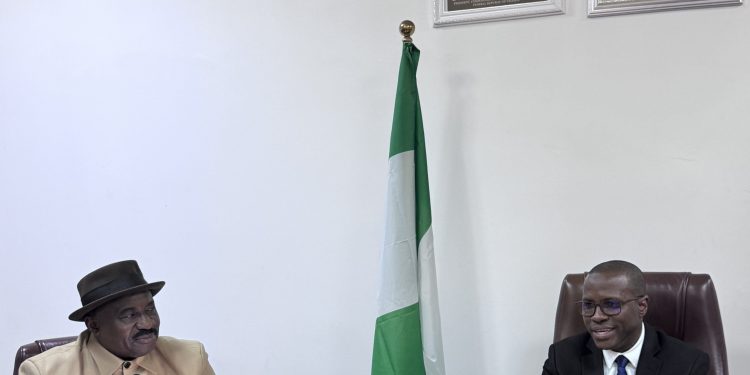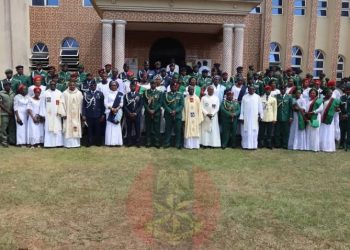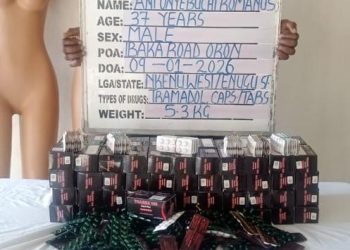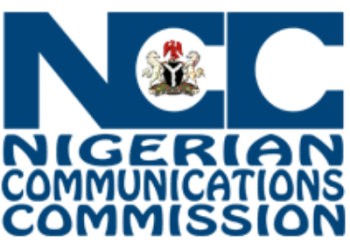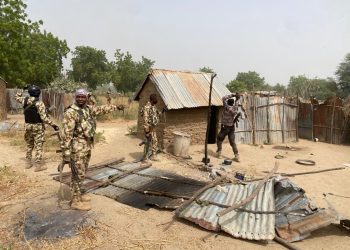By Nkechi Eze
In a significant move to strengthen transparency and integrity in Nigeria’s aviation industry, the Chairman of the Independent Corrupt Practices and Other Related Offences Commission (ICPC), Dr. Musa Adamu Aliyu, SAN, has pledged the Commission’s full support for a strategic anti-corruption partnership with the Nigeria Civil Aviation Authority (NCAA).
Dr. Aliyu made this commitment on Monday, July 29, 2025, when he received the Director-General of the NCAA, Captain Chris Ona Najomo, and his delegation on a courtesy visit at the ICPC headquarters in Abuja. According to an official statement signed by the Director of Public Enlightenment and Education, Demola Bakare, the meeting focused on laying a foundation for robust collaboration between both agencies to tackle corruption within aviation regulation and service delivery.
Welcoming the NCAA team, the ICPC Chairman stressed that corruption in the aviation sector has far-reaching implications for national security, economic growth, and global reputation. He said no single agency can tackle corruption in isolation, urging for a multi-sectoral and proactive approach.
“We must recognise that no agency can fight corruption alone. Collaboration is not only essential but also strategic, especially in a sector as critical and internationally sensitive as aviation,” Aliyu stated.
As part of this collaborative framework, Dr. Aliyu proposed the establishment of a Joint Corruption Prevention Roundtable to serve as a platform for knowledge sharing, development of targeted anti-corruption strategies, and identification of corruption risks specific to the aviation sector. He also suggested the formalisation of the partnership through a Memorandum of Understanding (MoU), which would pave the way for long-term cooperation, enhance institutional integrity, and attract greater investor confidence in the country’s aviation industry.
In his remarks, NCAA Director-General, Captain Chris Ona Najomo, described the visit as part of his administration’s efforts to deepen ethics, transparency, and accountability in all facets of civil aviation regulation. He requested the ICPC’s support in bolstering the NCAA’s internal anti-corruption architecture, particularly in enhancing whistleblower protection mechanisms, strengthening the Anti-Corruption and Transparency Unit (ACTU), and providing technical guidance on a draft Sector Code of Ethics designed for airlines, maintenance providers, and aviation training institutions.
Captain Najomo highlighted the agency’s digital transformation drive, aimed at automating licensing, certification, and surveillance processes to reduce human interference and limit avenues for corrupt practices.
“As we modernise our systems and operations, we want ICPC’s institutional lens to help us identify vulnerabilities, mitigate risks, and ensure we are delivering governance that meets both national expectations and global benchmarks,” Najomo said.
He reaffirmed NCAA’s alignment with the National Anti-Corruption Strategy (2022–2026), noting that the agency is fully committed to integrating its five strategic pillars prevention, public engagement, ethical reorientation, enforcement, and asset recovery into all internal operations and ACTU activities.
The meeting concluded with a mutual agreement that this collaboration marks the beginning of a strategic alliance aimed at cleaning up regulatory bottlenecks, reinforcing institutional accountability, and positioning Nigeria’s aviation sector as a model of good governance, operational integrity, and safety assurance on the African continent and beyond.


